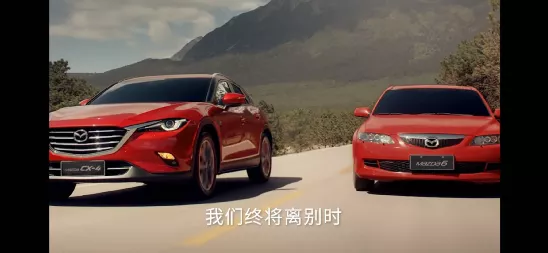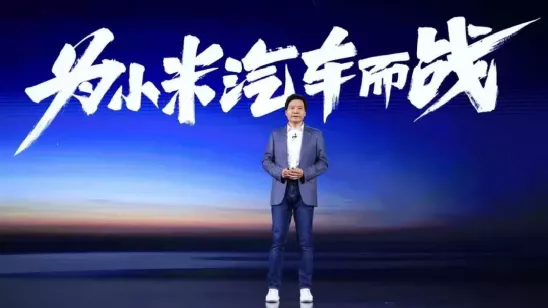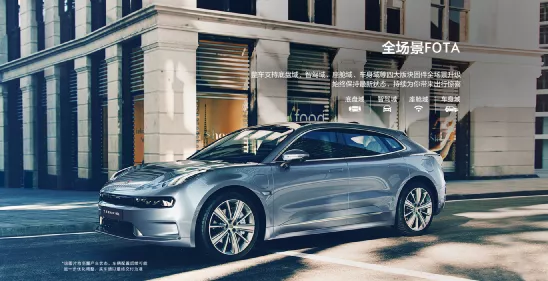Outing Bai Ren Media Focuses on the Evolution of the Automobile Industry Chain
Author: Kuang Ji
In the just past week, besides the Chengdu Auto Show that dominated the weekend, there were three major events in the car industry that were worth attention, all of which are related to capital operation.
Interestingly, against the backdrop of the big changes in the automobile industry, these three events happened to three types of car companies, which is even more intriguing.
North and South Mazda Merge, Brothers Become Father and Son
Just like Volkswagen, Toyota, and Honda, Mazda also has two joint venture companies in the Chinese market. However, now it has become a failure case.
On August 24th, Mazda Motor Corporation, Changan Automobile, and FAW Group jointly announced that they have reached a consensus on the matter of FAW participating in the capital increase of Changan Mazda, with China FAW as the investor of the capital increase project of Changan Mazda, and the 60% equity valuation of FAW Mazda Automobile Sales Co., Ltd. will be used to fund the investment in Changan Mazda.
After completing the approval procedures, Changan Mazda will become a joint venture company jointly funded by the three parties, with the proportion of investment being (Mazda) 47.5%, (Chang’an Automobile) 47.5%, and (China FAW) 5%. The new Changan Mazda will take over the relevant business of Changan Mazda and Mazda. At the same time, FAW Mazda will become a joint venture company jointly funded by Mazda and the new Changan Mazda, and continue to bear the relevant business of the Mazda brand.
Public information shows that Mazda was originally cooperating with Hainan Auto, and then FAW Group integrated Hainan Auto and established FAW Mazda with Mazda in 2005, with China FAW holding 4% of the shares, FAW Car holding 56%, and Mazda holding only 40%.
In the same year, the predecessor of Changan Mazda, Changan Ford Mazda, was established, with Changan holding 50%, Ford holding 35%, and Mazda holding 15%. In 2012, there was a change in equity, and Mazda and Changan Automobile jointly established a joint venture company with each holding 50% of the shares.
However, the qualifications of the two joint venture companies in the north and south were different. FAW Mazda is only a sales company and does not have the qualification for vehicle production. It is manufactured by FAW Pentium. Changan Mazda has both production and sales functions.
Moreover, the product lines of the two companies are also different. The main models of FAW Mazda include Mazda 6 Atenza and Mazda CX-4. The product line of Changan Mazda is richer, with the main models including Mazda 3 Axela, Mazda CX-30, Mazda CX-5, and Mazda CX-8.In recent years, after experiencing a period of glory, sales of Mazda in both North and South China have continued to decline. Meanwhile, rumors of a merger between the two companies have frequently circulated in the market, but have been denied by FAW Mazda, Changan Mazda, and Mazda China.

Now, with the rumors becoming reality, everyone is happy.
Some insiders believe that for FAW Group, it is like taking off a burden. For Mazda, it can integrate resources in the Chinese market and save management costs. As for (New) Changan Mazda, it can better develop independently without the restraint of its brother and embrace the transformation to electrification.
Rich as Xiaomi, Not a White Knight
Since announcing its entry into the car-making industry, Xiaomi Group has been closely watched.
On the evening of August 25th, Xiaomi Group announced that the company had conditionally agreed to acquire 71.16% of the issued share capital of Deepmotion Tech Limited (a self-driving technology company) and 28.84% of its preferred stock, totaling 125 million common shares and 50.8547 million preferred shares. The total acquisition price is approximately $77.37 million (about RMB 500 million).
Industry commentators believe that Xiaomi Group has made a very profitable deal by not only acquiring a self-driving technology company with considerable technical strength, but also absorbing a technical team.
In fact, this is not Xiaomi Group’s first move in the automotive industry.
Previously, Xiaomi Group participated in the series D financing of lidar start-up Wosai Technology, and strategically invested in iPark, as well as participating in the series B financing of Hive Energy. Xiaomi Technology has also frequently invested in autonomous driving, including the investment in ZongMu Technology and Geometry Partner earlier this year. Xiaomi’s investment focuses on the automotive chip industry, having invested in BYD Semiconductor and Jugene Microelectronics.

However, the wise Lei Jun, although new to the automotive industry, is strategic and will not act as a white knight. Just 10 days ago, Xiaomi Group clarified rumors that it would acquire 65% of Evergrande Auto.On August 19th, it was reported that Evergrande Group is in talks with Xiaomi about selling 65% stake in its electric vehicle unit, but negotiations are still in the early stages and other variables cannot be ruled out. The following morning, Evergrande Group issued a statement on its official website, stating that during the process of introducing strategic shareholders to Evergrande Auto, it had preliminary communications with Xiaomi Group but had not entered into any in-depth discussions.
Without a doubt, car manufacturing is a bull to swallow gold, even with Evergrande Auto buying constantly. Although Lei Jun has promised to invest 10 billion USD in ten years and has pledged an initial investment of 10 billion RMB for Xiaomi Auto, every penny must be used efficiently.
For Xiaomi, gradually penetrating the automotive industry chain through investment or acquisition is not only a learning process, but also reduces R&D costs and investment risks.
What is the purpose of “Co-creation and Co-investment” with Geely Auto Finance?
It’s probably fair to say that Geely Auto is the most knowledgeable about capital operation among independent auto companies, but when it comes to storytelling, I would suggest that Li Bin be the first to come out and oppose that.
On August 27th, Zeekr Xintai Technology Co Ltd signed a strategic investment agreement with Intel Capital, CATL, Bilibili, Hongshang Group, and Boyu Capital as its five ecological partners. The financing round was led by Intel Capital, and the total investment amount of the five ecological partners was 500 million USD, accounting for approximately 5.6% of Zeekr’s stock after investment.
According to data, before this round of financing, Geely Holding Group (including employee investment platform and user equity platform) held 49% of Zeekr, and Geely Auto held 51%. After this round of financing is completed, Geely Auto’s shareholding in Zeekr will be reduced from 51% to 48%.
In the announcement, Geely Auto stated that although its equity in Zeekr would fall below 50%, it would still be the single largest shareholder with a stake of approximately 48%, and it would still be able to control Zeekr’s board of directors. Furthermore, even though Geely Auto’s shareholding will fall below 50%, the Geely system still controls more than 90% of the shares.
During a media communication session, Zeekr CEO An Conghui stated that this round of financing had three principles: firstly, co-creation and co-investment means that Zeekr and ecological partners collaborate to focus on safe, sustainable travel and user experience; secondly, open boundaries means that partners from all sides, from users to industries and from raw materials to the internet, can become Zeekr’s co-creation partners; thirdly, long-termism means that Zeekr’s collaboration with ecological partners should contribute to the long-term development of the entire industry.He believes that “the five strategic ecological partners in this round are all leading enterprises in their respective fields, with strong strength and unique advantages in intelligent innovation technology, new energy ecological technology, young user insight, vertical integration of raw materials and new consumer fields.”

It is worth noting that on the same day as Jidu Auto announced its financing, Mobileye, a subsidiary of Intel, announced its cooperation with Jidu Auto to jointly develop advanced driver assistance systems (ADAS). The first model, ZEEKR 001, which will be launched in the fourth quarter of this year, will be equipped with Mobileye Supervision.
With one month left before the delivery, the first round of financing was completed under the banner of “joint creation and joint investment”. This not only helped promote Jidu Auto’s first model, but also attracted the attention of the capital market. In its research report, China Merchants Securities stated that in the long term, Jidu Auto has huge valuation release space, and is expected to drive up the valuation of Geely Automobile.
Regarding Jidu Auto’s next financing plan, CFO Yuan Jing said that the company has no clear IPO plan at this stage, and will focus on exploring the international market and creating more product categories. In the future, Jidu Auto does not exclude the possibility of further participating in the capital market in different forms.
This article is a translation by ChatGPT of a Chinese report from 42HOW. If you have any questions about it, please email bd@42how.com.